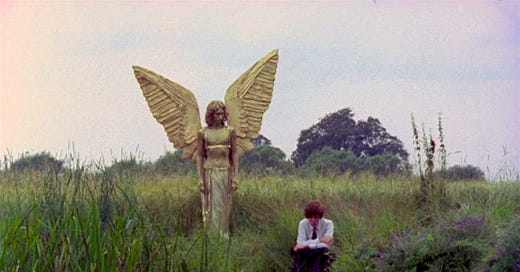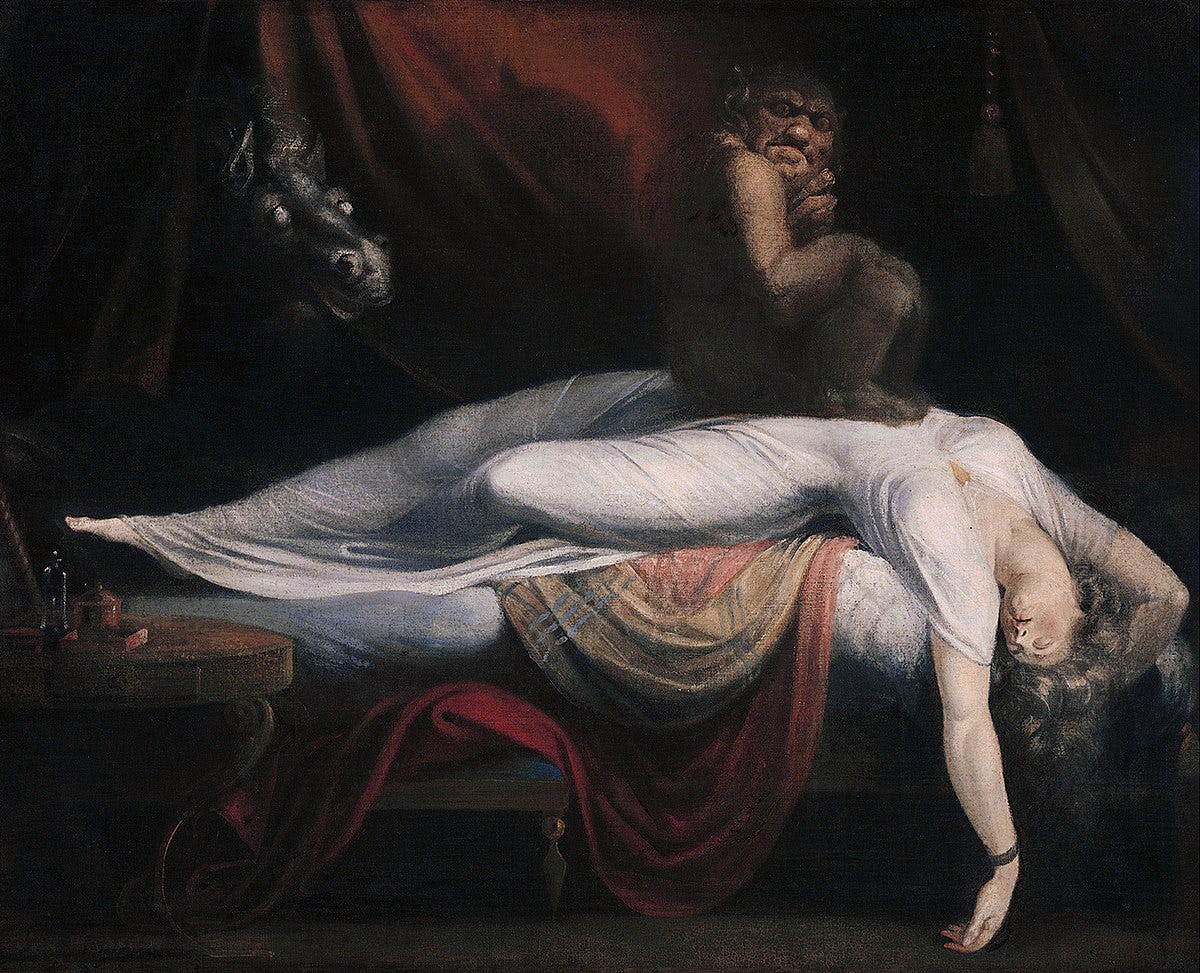Directed by Alan Clarke
United Kingdom, 1974
Back in the 1970s television was very different. The BBC ran a series of stand-alone dramas that lasted a whole decade. Play for Today was shown at 9pm on a Thursday evening, usually preceded by a sitcom festooned with casual racism. The directors Ken Loach and Mike Leigh were among its alumni, the themes were challenging and the content unflinching. It is hard to imagine many of these plays finding a home on terrestrial television today.
One of the directors that attracted controversy was Alan Clarke. His films commonly dealt with what these days we would label toxic masculinity. Tim Roth played a racist skinhead in Made in Britain, and Scum, a brutal and unflinching drama set in a borstal, was actually withdrawn and banned by the BBC before it had a theatrical release. So it comes as a surprise to find that Clarke was responsible, along with playwright David Rudkin, for Penda’s Fen, a Romantic meditation on England shot through with elements of thriller, documentary, sci-fi and horror.
Penda’s Fen is a very simple story; it tells of a boy, Stephen, who in the last summer of his boyhood has a series of encounters in the landscape near his home which alter his view of the world - David Rudkin
Filmed on location in the village of Pinvin amid ‘England’s green and pleasant pastures’ of rural Worcestershire, Stephen Franklin (Spencer Banks) is a seventeen year old vicar’s son who is conservative with both a large and small ‘C’. He has notions of a pastoral England of tradition that is threatened by striking workers and immoral programmes on the television. At one point he talks about ‘nurturing the Aryan national family on its Christian path’ … so more Enoch Powell than Edward Heath.
This adolescent Nigel Farage is a sixth former at a boys’ grammar school where he spends his time contemplating Latin translation, dressing up for the school cadet force, and playing a particular record, the Dream of Gerontius, by the emblematically English composer Edward Elgar. Things begin to change however over the course of one summer. His prejudices and hidebound notions of an idyllic Albion are stripped away.
Stephen has erotic dreams about his classmates, he becomes a conscientious objector … and then has fantastic visions of angels and demons. Questions of identity mount and finally on his 18th birthday he is told by his parents that he is in fact adopted – the mixed race offspring of a pair of Europeans. So, a rite of passage then but this film is much more than that. It has layer upon layer, interrogating ideas of sexuality, religion and mythology.
Stephen stumbles upon his father’s hidden depths. The Reverend Franklin, ostensibly a respectable country parson is the author of a heretical manuscript, ‘The Buried Jesus’. This unpublished book laments the fact that the “name of this life-enhancing, revolutionary Jesus should be dangled like a halo over a sick culture centred on authority and death.” Stephen’s father tells him that to live in the world he must be ‘two selves’: the one who needs to survive and must play along with authority, and also the real self.
There are hidden depths beneath the Fen too. The military divert traffic from the surrounding roads. A teenage partygoer gets out of a car to relieve himself in a hedgerow and returns with severe burns. The boy’s mother turns up at his hospital bed to find him surrounded by three pillars of the Establishment: a vicar, an Army officer, and a policeman. These events remain unexplained like other threads in this film: it is full of interruptions and diversions and certainly merits repeat viewing.
For a television film made of modest means there are moments of cinematic beauty and sequences (produced with the assistance of the now-defunct BBC visual effects department) that will stay with you: the Fuseli-inspired incubus sitting on Stephen’s bed, the earthquake fissuring the nave of the church, and a bizarre diversion into a country manor where a Midsommar-type cult engage in ritual amputations – or was this a hallucination?
The Nightmare - Henry Fuseli
Penda’s Fen has a dense intertextuality, with references to TS Eliot, Joyce, and Milton. The atmosphere is redolent of William Blake’s Songs of Innocence and Experience. Stephen comes to reject the oppressive and corrupted restrictions of organised religion, eventually gaining absolution…
He is walking through the hills where he is surprised by the appearance of the ‘mother and father of England’, the conservative Christian couple he had celebrated earlier for their successful censorship of a television programme challenging the Church. They see him as a figurehead in their Nationwide Festival of Light and a future leader in a renewed conservative society. They call him back from his errant ways but Stephen spurns their pleas stating:
My race is mixed. My sex is mixed. I am woman and man. Light with darkness... nothing pure...I am mud and flame!
This means he must be destroyed and so they set him aflame. Hearing his cries the last pagan King of England, Penda (died 655 AD), returns and the reactionary couple explode and vanish …
Child be strange, dark, true, impure and dissonant. Cherish our flame. Our dawn shall come…
This is England.
Reids’ Results (out of 100)
C - 80
T - 70
N - 75
S - 78
Thank you for reading Reids on Film. If you enjoyed it please share with a friend and do leave a comment.





